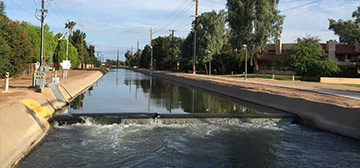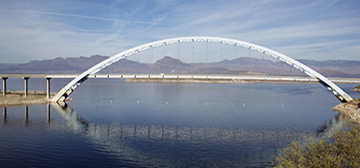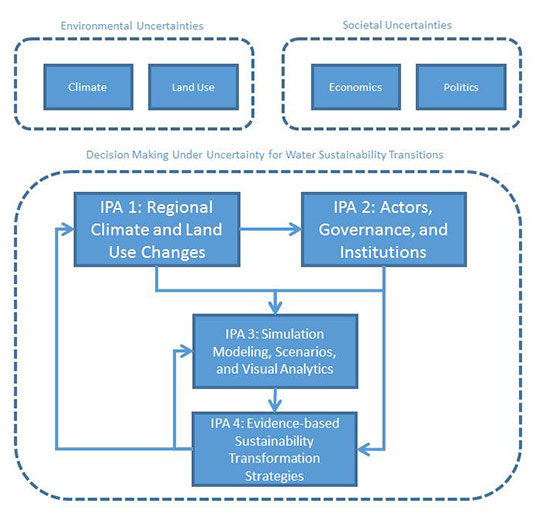Integrated Project Areas

Regional Climate and Land-Use Changes
IPA 1 will seek to understand the impacts of regional climate and land-use changes on urban water systems in the context of sustainability transitions in the Colorado River Basin.

Actors, Institutions, and Governance
Using a multi-city analysis, IPA 2 will explore social and institutional opportunities and constraints for sustainability transitions.

Simulation Modeling, Visual Analytics, and Scenarios
IPA 3 will use simulation modeling and visual analytics, to integrate knowledge about the biophysical and socioeconomic drivers of water-systems decision making in our three cities; engage stakeholders in constructing and evaluating scenarios; and evaluate solutions and transition strategies.

Evidence-Supported Transition Strategies
IPA 4 will develop and evaluate evidence-supported transition strategies toward sustainable water governance for Colorado River Basin cities.
Analytical Framework
We will organize our collaboration around four integrated project areas (IPAs) using a suite of linked biophysical process models that simulate climate change, urbanization, land use, and hydrological processes in the Colorado River Basin to produce a set of climate and land-use scenarios (IPA 1).
To understand social and institutional opportunities and constraints for sustainability transitions, we will conduct a multi-city social, economic, and institutional analysis—including a residential survey study of environmental attitudes, interviews of regional decision makers, and an economic analysis of residential water use (IPA 2).
The outcomes of the simulated regional biophysical processes (IPA 1) and social, economic, and institutional analyses (IPA 2) will be incorporated as inputs, constraints, parameters, and policy options for socio-hydrological urban water-systems modeling and scenario analysis, with a multi-platform visualization (e.g., web interface and immersive decision theater) (IPA 3).
In IPA 4, we will create an inventory of transformational solutions to water governance, identify transition points, design transition strategies, and evaluate real-world transition experiments and modeling simulations (with IPAs 1 and 3).
With input from all IPAs, we will conduct cross-city, comparisons to evaluate context-specific and transferable transition strategies.
Throughout the project, the collaborative group will leverage and expand DCDC’s network of relationships with stakeholders, developed over more than a decade of sustained engagement, to co-create opportunities to facilitate sustainability transitions in the region.

Integrated analytical framework for theory of decision making under multiple uncertainties to inform water sustainability transitions in the Colorado River Basin.


